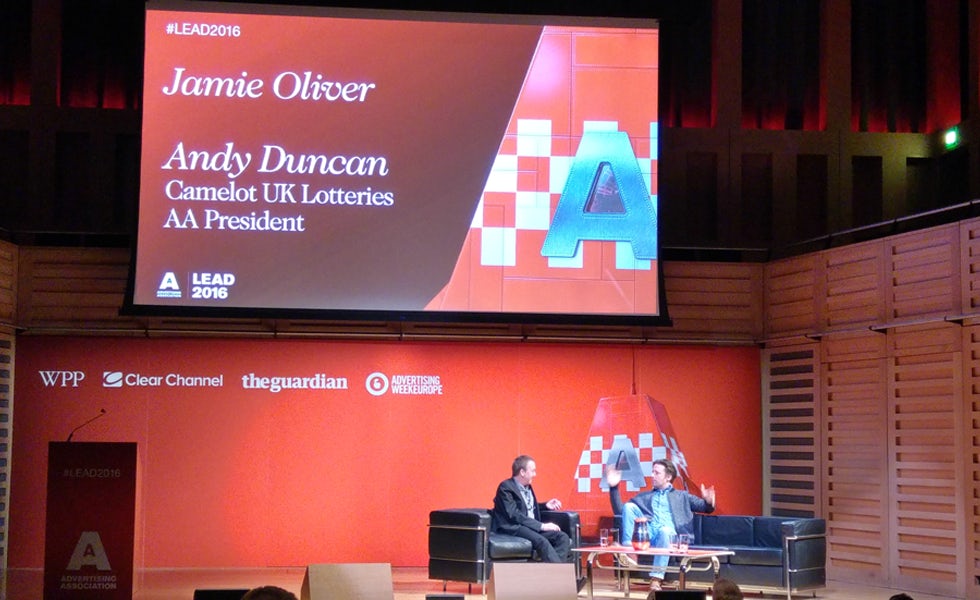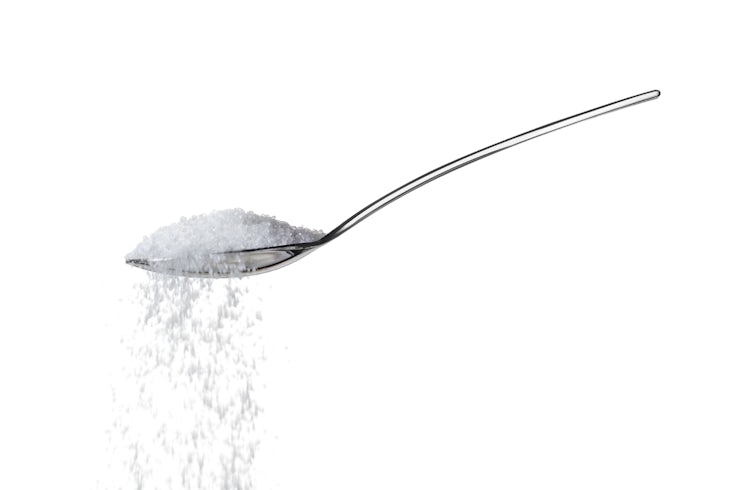Jamie Oliver: ‘Brands are not even getting the basics right when it comes to tackling childhood obesity’
Jamie Oliver has issued a damning indictment on the state of the food and drinks industry’s attempts to tackle childhood obesity, saying it is barely managing to get the basics right and that brands need to take more risks to make eating healthy food “cool” and come up with a holistic approach to meet the challenge.

Speaking at the Advertising Association’s LEAD 2016 conference in London today (28 January), Oliver said most brands are only now tackling issues such as reformulation and product labelling. He highlighted the example of Ribena, which only shows nutritional information for half a bottle of its drink and uses adult guidelines when “it’s a kids drink”.
The main challenge, he said, is that most brands are too risk averse to make the business decisions that could help improve children’s health. He said McDonald’s could make salad “cool” if it wanted to but the question is whether it wants to.
“Brands need to be more experimental and look at what proportion of their output takes risks. Brands need to come together and say ‘We’ll do things differently’.”
Jamie Oliver, chef
Despite all this, Oliver said a number of brands are working on improving their health credentials and picked out McDonald’s, Coca-Cola and Mars for particular praise.
He described McDonald’s boss Steve Easterbrook as a “man on a mission” and said Coke’s CEO Muhtar Ken has done some “radical and pioneering” work on reducing sugar, reducing product sizes and providing colour-coded nutritional information.
In fact, Coca-Cola’s new marketing strategy ‘Taste the Feeling’ is all about boosting the prominence of its lower and no-calorie products and the brand has recently changed the formula for Coke Life to cut the amount of sugar still further.

On the sugar tax, Oliver said the aim was not necessarily to bring in a new tax but to kickstart the debate. It is a similar case with his calls to ban adverts for foods high in sugar, salt and fat before the 9pm watershed, which have been widely rejected by the food and drink industry.
“When we all have six packs and are living healthy lives then we can have ads for HFSS in the X Factor,” he said.
What Oliver does want, however, is a holistic approach to tackling the obesity crisis that comes from across the industry and involves brands, agencies, the Government and industry organisations. The Government’s obesity strategy is set to be announced soon, but Oliver is worried it will not be drastic enough.
“Bringing the industry together is key. We have been into nudging but it needs to be more of a slap,” he said.







